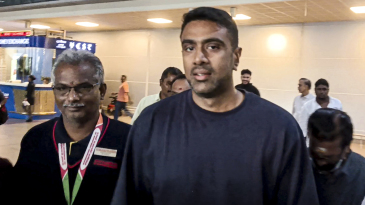
The BDN Opinion section operates independently and does not set news policies or contribute to reporting or editing articles elsewhere in the newspaper or on bangordailynews.com
William Lambers is an author who partnered with the UN World Food Program on the book Ending World Hunger. His writings have been published by the NY Times, Washington Post, Newsweek, History News Network, Cleveland Plain Dealer and many other news outlets.
Instead of some candidates using Springfield, Ohio for political purposes the focus should be on helping people in need. We should support everyone in Springfield as the city copes with a surge in Haitian migrants and a strain on resources. We also cannot forget about the massive humanitarian crisis back in Haiti.
Anyone can help Springfield by donating to the Second Harvest Food Bank of Champaign, Clark, and Logan Counties in Ohio. This is the foodbank that assists Springfield and surrounding communities. Second Harvest is seeing increased demand for food assistance in Springfield, including from the Haitian community there.
Food banks can help families get through tough times and are a major source of stability. But it is always a challenge for food banks to keep supplied, especially when demand quickly increases like in Springfield. Monetary donations are usually best to help food banks so they can obtain the most supplies.
Anyone can also write to their elected officials encouraging federal government support for Springfield, in addition to the aid just announced by Ohio Gov. Mike DeWine. Also needed is expansion of the federal food stamp program (SNAP) which would help families in Springfield and bring back pandemic relief programs like the expanded child tax credit.
We must not forget the tragedy occurring in Haiti itself. A series of natural disasters and gang violence have increased hunger and displacement within Haiti.
The U.S. Agency for International Development (USAID) says that in Haiti, “Approximately 8.3 million people, nearly 70 percent of the population, faced insufficient food consumption in May and June.”
The UN World Food Program identified Haiti in its Hunger Hotspots report as one of the biggest crisis areas. Haitians have lost access to their farms and this worsens hunger. Children can’t go to school because of the violence.
As the World Food Program and other relief agencies provide food assistance in Haiti, they need more resources. Haiti’s Humanitarian Response Plan is only 35 percent funded according to a recent USAID report.
The USAID has been providing funding to help Haiti including a recent donation, and we need to increase this support with hunger escalating.
The U.S. and the international community can all do more to help Haiti. Congress needs to boost funding for our global food aid programs to help Haiti and the many other countries in need. We have to realize how serious the crisis is within Haiti.
“You had mass hunger for years. That means mass unrest, civil strife, displacement and migration,” said Jean-Martin Bauer, the UN World Food Program director in Haiti.
Sadly, this hunger in Haiti has largely been forgotten in the news, and very few people know what is happening. But Haiti’s hunger has implications that spread far and wide.
Our focus now should be to prevent starvation and deadly malnutrition in Haiti. We must ensure the World Food Program and other relief agencies have the funding needed to fight hunger in Haiti.
It’s crucial we help Haiti overcome hunger and insecurity, to give people hope they can live in their homeland. We must expand programs that are feeding children and supporting agriculture.
Playing politics won’t help anyone in Springfield or Haiti. But America’s humanitarian spirit can bring relief to people in need.











